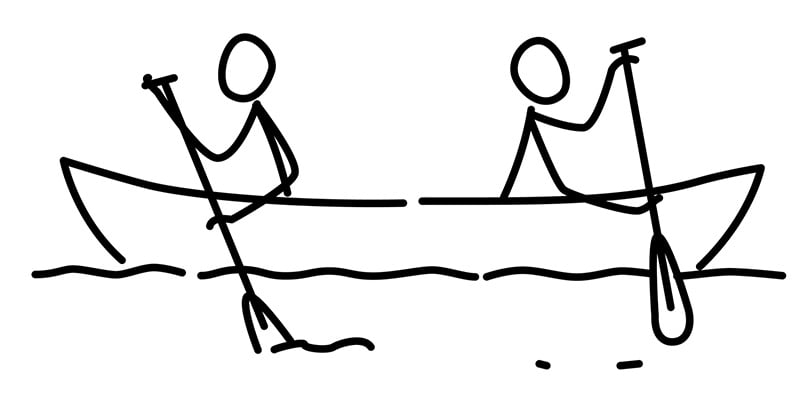
The objective of an effective collections policy is to ensure that clients pay on time. The policy will also determine what happens when the client doesn't pay within the timeframe of their payment terms. When your business is struggling with cash flow or falling behind on collecting what's owed, it could be a sign that the policy needs updating.
Here are signs that your B2B collections policy isn't working.
Past Due Invoices are Piling Up
When your aging report shows more invoices past the 30-45 day due dates than those paid on time, it's a clear sign that your collections policy isn't working. Perhaps your accounts receivable department isn't invoicing on time. Maybe the payment terms need to be updated for certain clients. Are the roles and responsibilities of A/R and collections clearly defined?
More Bad Debt is Being Written Off
When your accounts receivable department is writing off more bad debt at the end of the year than usual, it could be a sign that your collections policy isn't working. Bad debts are receivables that are unlikely to be paid at all. It might be written off because your client declared bankruptcy or there were contract disputes. Or it could be that the collections department didn't follow up enough or was unsuccessful in reaching someone or that the client simply refused to pay.
See also: 5 Reasons for An A/R & Collections Policy
Your Collections Effectiveness Index is Low
Measuring the effectiveness of your collections is a clear determinant of a weak collections policy. A collections effectiveness index close to 100% means that your accounts receivable and collections departments are successful.
Use the following formula to determine your CEI:
(Beginning receivables + Monthly credit sales - Ending total receivables) ÷ (Beginning receivables + Monthly credit sales - Ending current receivables). Then multiply the answer by 100 to get a percentage.
It's Unclear When To Send the Account to Third Party Collections
The procedural steps to resolving the debt are some of the most important parts of any B2B collections policy. From the time the contract is received until the account is paid in full, written off, or sent to a third-party collections agency. If these steps are not identified, the past-due invoices could get lost in the shuffle and remain unpaid. And unpaid invoices will affect your business's cash flow. When your accounts receivable or collections departments are not sure when to ask for professional help with past due accounts, it's a sign your collections policy isn't working.
When your B2B collections policy isn't working, that means it's time to give it a refresh. If you don't have one to begin, download the sample template above to get started. The more organized your collections process, the more successful your business will be.





